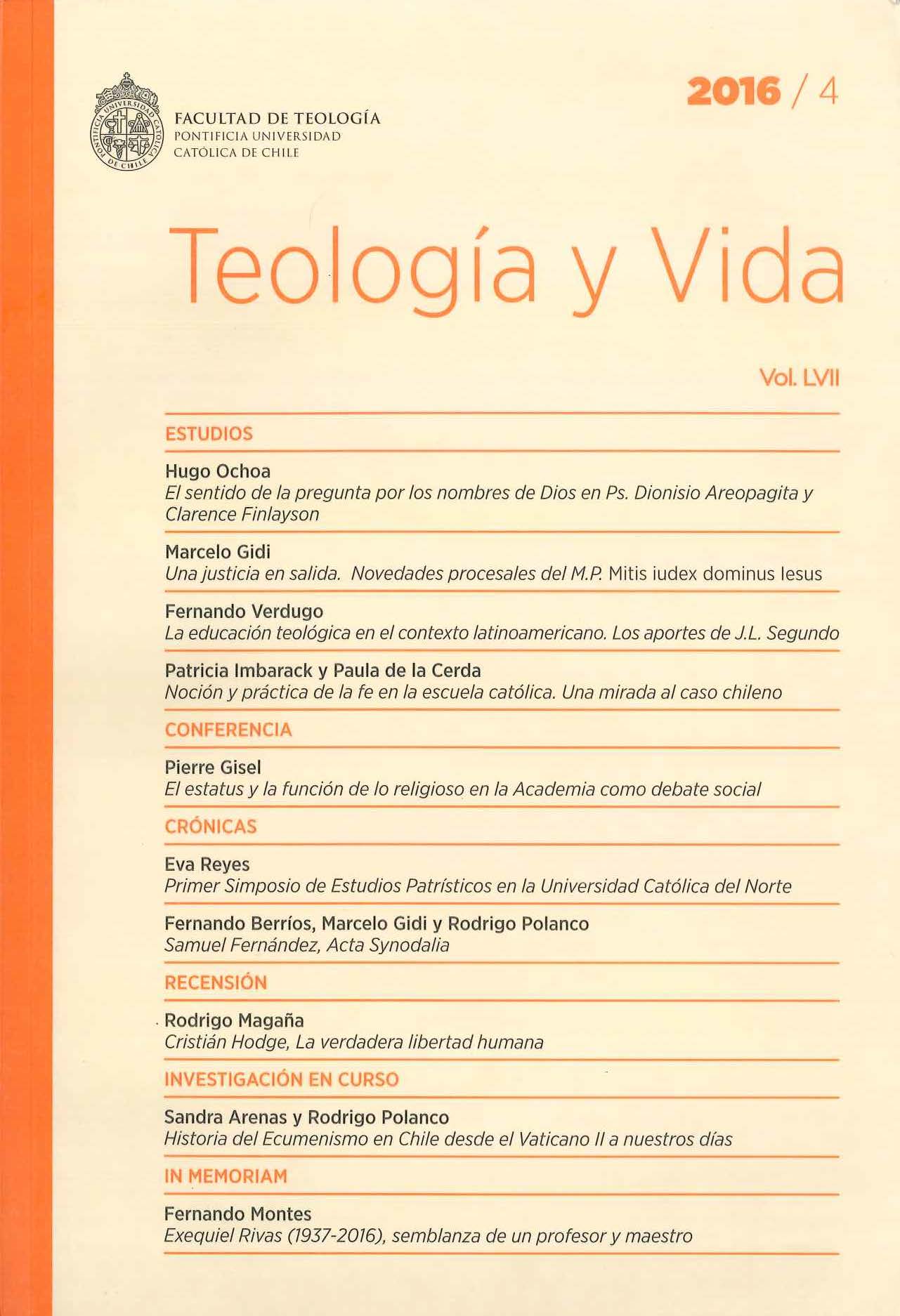El sentido de la pregunta por los nombres de Dios en Pseudo Dionisio Areopagita y Clarence Finlayson
Contenido principal del artículo
Resumen
Resumen: Pseudo Dionisio Areopagita inicia una larga tradición que interroga por los nombres de Dios, cuestión central para la fe, ya que permite elucidar su contenido y su sentido. No obstante, dar con el verdadero nombre de Dios excede absolutamente las capacidades cognoscitivas del ser humano, de allí que Pseudo Dionisio haya recogido los nombres que Dios recibe, así sea como atributos, de las Sagradas Escrituras. Finlayson se propone un camino completamente distinto, al menos metodológicamente, pues trata de establecer la esencia metafísica de Dios, distinguiéndola de sus atributos, esencia que revelaría los nombres de Dios. Este trabajo pretende mostrar que uno y otro camino se entrecruzan y por ello concuerdan en su propósito: dar un fundamento vital a la fe.
Palabras clave: Pseudo Dionisio, Finlayson, nombres de Dios, fe, teología negativa.
Abstract: Pseudo-Dionisyus the Areopagite is the beginner of a longstanding tradition wherein the question about the names of God rises, which is a core matter of faith, as it permits to elucidate its content and the sense. Nonetheless, to fi nd the real names of God largely exceeds the cognitive abilities of the human being, hence Pseudo-Dionisyus collected the names of God, as attributes in the Scripture. Finlayson, on the other hand, proposes a completely different way, at least from the methodological standpoint, wherein he attempts to establish the metaphysical essence of God, by distinguishing it from its attributes, the essence may reveal the names of God. The purpose of this work is to show that both paths meet and consequently agree in their purpose: lay a vital foundation for the faith.
Key words: Pseudo-Dionisyus, Finlayson, names of God, faith, negative theology
Descargas
Detalles del artículo
Los autores de artículos aceptados en Teología y Vida conservan los derechos de propiedad intelectual sobre sus trabajos y otorgan a la revista los permisos de distribución y comunicación pública de los mismos, consintiendo que se publiquen bajo una licencia Creative Commons (BY-NC-ND) 4.0 Internacional, que se otorga por todo el plazo de protección de la obra y con un carácter no exclusivo. La única limitación para el autor es que sólo podrá otorgar licencias no exclusivas sobre su obra. Esta licencia no permite la generación de obras derivadas ni hacer un uso comercial de la obra original, es decir, sólo son posibles los usos y finalidad que no tengan carácter comercial.
Se recomienda a los autores publicar su trabajo en Internet (por ejemplo en páginas institucionales o personales, repositorios, etc.) respetando las condiciones de esta licencia y citando debidamente la fuente original.

